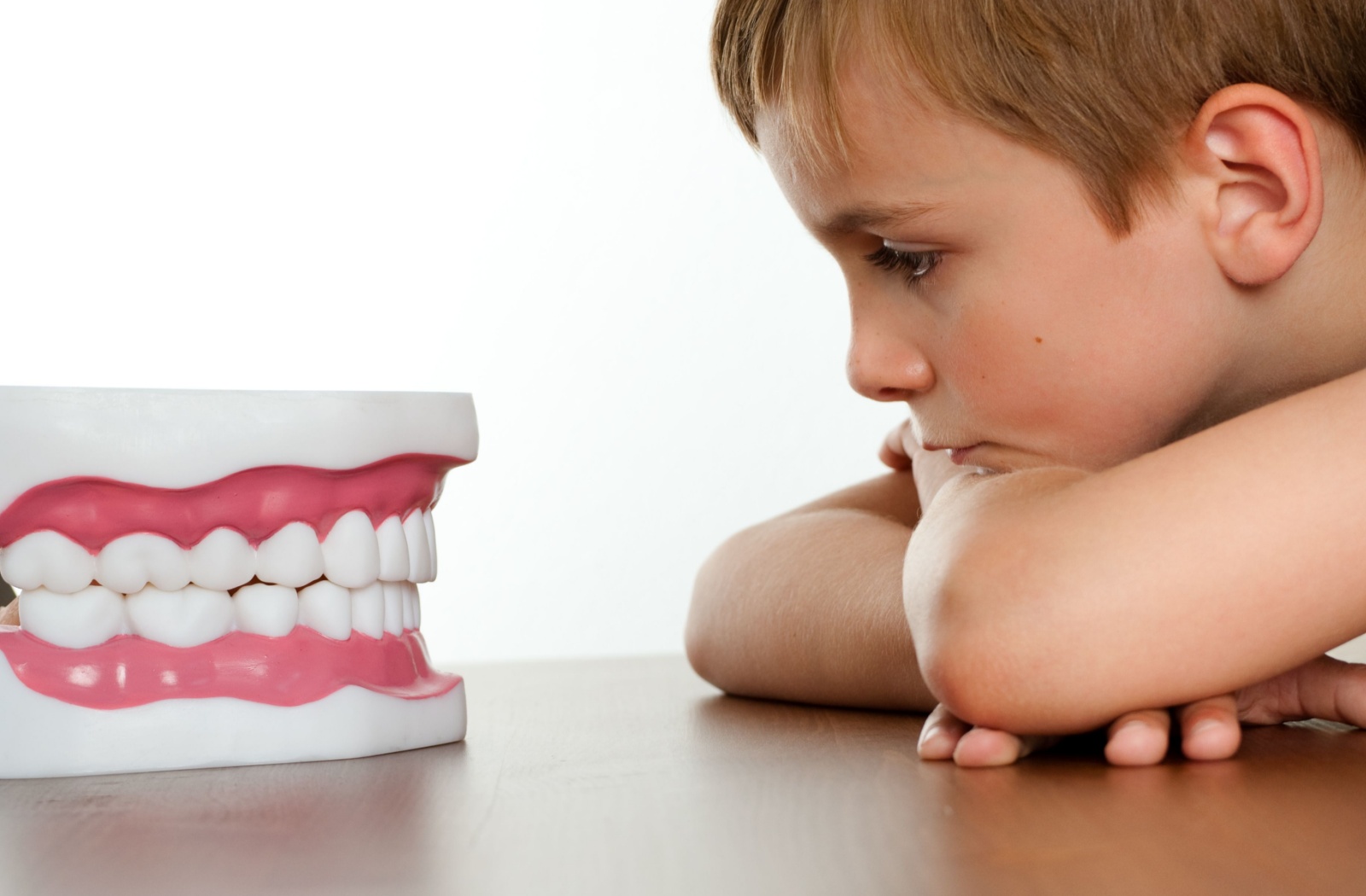Can Kids Get Dentures?

We don’t ordinarily think of children when we think of dentures. In fact, dentures are more often associated with their grandparents! But children can have missing teeth too, and denture treatment is sometimes needed to help them eat, speak, and grow properly.
Dentures can be made for children who have lost their teeth due to injury, decay, or underlying health conditions. If you believe your child may benefit from full or partial dentures, talk to our team at Hayven Dentures today.
Why Kids May Need Replacement Teeth
Our teeth help us communicate, stay nourished, and smile. Not having teeth can also interfere with jawbone growth and damage a child’s gums.
Children can lose teeth for many reasons, from simple injuries to underlying health conditions like ectodermal dysplasias.
Injury & Decay
Trauma, such as from a flying baseball or a fall, can knock a child’s tooth out. Baby teeth can be replaced by adult teeth, but a knocked-out permanent tooth presents a more complex situation. That’s because it only takes 5 minutes of separation for the periodontal ligament, which attaches teeth to the jawbone, to be unable to heal properly.
Getting medical attention within 10 minutes increases the likelihood that an adult tooth can take root again. However, tooth replantation tends to be more successful among people ages 16 and up. It’s less successful for younger people under 16.
Tooth decay is another reason children may have missing teeth. According to the Canadian Dental Association (CDA), early childhood caries (ECC) is the most common childhood disease.
Health Conditions
Certain health conditions may result in missing teeth, including ectodermal dysplasia syndromes and hypodontia.
- Ectodermal dysplasias: These disorders affect the proper development of teeth, skin, hair, nails, and glands. Symptoms include missing or improperly developed teeth.
- Hypodontia: This is a more general term that refers to being born without all of your teeth. A person is considered to have hypodontia if they’re missing 1 to 6 teeth (excluding wisdom teeth). Hypodontia can be inherited. It can also be caused by health conditions, infections, or treatments like chemotherapy.
Dentures for Children
Modern dental care offers solutions for missing teeth, including full or partial dentures. Dentures are custom-made devices designed to replace missing teeth and/or gums.
Partial Dentures
Partial dentures are clasped onto natural teeth. They can be removed and cleaned by the patient at night. This type of denture is often used when multiple teeth are missing, or when natural teeth aren’t able to hold a bridge.
Complete Dentures
Complete dentures are designed to replace an entire row of missing teeth and are attached to the mouth by suction. They can also be removed and cleaned. Some people experience soreness after getting complete dentures, but this should go away with time.
Two types of complete dentures are available: immediate and conventional.
Immediate vs. Conventional Dentures
Immediate dentures are placed in the mouth right after teeth have been removed, while conventional dentures are fitted after the mouth has healed from the extraction procedure. Immediate dentures let patients go about life with teeth while they’re healing after extraction. This healing process can take up to 6 months.
Gums and bones may shrink in size during healing, so immediate dentures may need to be relined from time to time.
Implant Dentures
Implant dentures can feel more snug, less loose, and more convenient for eating and speaking. They come in two types, removable and permanent, and involve the use of titanium implants inserted into the jawbone to secure them. Removable implant dentures can be taken out with a tool, and permanent dentures can be removed by your denturist if necessary.

Caring for Dentures
Parents should be aware that dentures, like natural teeth, require ongoing, consistent care. Here are some denture care tips:
- Brush and floss dentures every day. Without proper cleaning, dentures can harbour plaque and tartar just like natural teeth. Note that plaque can spread from dentures to remaining natural teeth.
- Ask your denturist to recommend cleaning tools. There are cleaning solutions designed for dentures, and they should be cleaned gently with a soft-bristle toothbrush. Don’t use regular toothpaste on dentures.
- Clean and massage the gums when you remove dentures.
- Mouths should take a break overnight, so don’t wear dentures to bed. Soak dentures overnight in warm (but not hot) water.
- Remind kids that dentures are delicate devices. They should be handled with care.
- Periodically check the dentures for any signs of damage and contact your denturist if the dentures break or don’t fit properly. Dentures need regular relining as mouths change.
Dentures for Kids: More Things to Know
Dentures can help kids speak, eat, and smile. But like any medical device, they require understanding and care.
Challenges
Dentures require a lot of care. So, children with dentures have a little more work to do and must be taught how to take care of their replacement teeth. They will also need to visit their dentist from time to time to reline their dentures and keep them fitting correctly. Some kids may also feel self-conscious about having dentures.
Benefits
Still, dentures for kids with missing teeth can offer many advantages. They can support jaw development, speech development, and communication. Dentures also help with chewing and, consequently, fulfilling a child’s nutritional needs. Finally, dentures look much like natural teeth and allow a child’s smile to look much like their peers’.
What to Expect at Hayven Dentures
Getting dentures in St. Catharines at Hayven Dentures is a 3-step process:
- Step 1: Meet us at an initial consultation to discuss your dental needs.
- Step 2: We’ll custom-fit a personalized set of dentures for you.
- Step 3: Enjoy your new dentures!
We want this process to be accessible and comfortable, and we offer services in English, Cantonese, Korean, Russian, Persian, and Arabic. We’re also happy to collaborate with others in your dental care team, including dentists, periodontists, and oral surgeons. Book a consultation with us to discuss dentures for yourself or a child in your care.